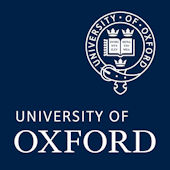Following two years of field research on a ‘cargo cult’ in New Britain , Papua New Guinea in the late eighties, Harvey Whitehouse developed a theory of ’modes of religiosity that has been the subject of extensive critical evaluation and testing by anthropologists, historians, archaeologists, and cognitive scientists. The modes theory explains the scale and structure of religious organizations in terms of the frequency and emotionality of rituals: low frequency emotionally arousing rituals bind together small groups of participants; high frequency, less exciting rituals create large anonymous communities that are more diffusely integrated. Recent efforts to test the modes theory have applied a wide range of methods including carefully controlled psychological experiments, economic games, large-scale surveys, and agent-based models. Whitehouse led much of this research as director of the Explaining Religion Project (2007-2010), which sought to explain both recurrent and variable features of religion and to describe and predict changes in religious systems over time. Funded by the European Commission and employing seven postdoctoral researchers in Oxford, this project involved 14 collaborating universities across Europe and North America.
Professor Whitehouse is currently director of the Ritual, Community, and Conflict project funded by a five-year Large Grant from the ESRC (2011-2016) which examines the role of ritual in the evolution of social complexity. This project, involving 15 collaborating universities around the world, examines the emergence of the ritual stance in childhood, the psychological and behavioural effects of performing different kinds of rituals in groups, and the consequences of this for the scale and structure of human social systems. Studying how children learn the rituals of their communities is helping us understand the various ways in which rituals promote social cohesion within the group and distrust of groups with different ritual traditions. Qualitative field research, surveys, and controlled psychological experiments are being conducted with survivors of modern warfare and civil disturbance to investigate the role of ritual in group bonding and inter-group competition. Historical and archaeological databases are being constructed to explore the relationship between ritual, resource extraction patterns, and group structure and scale over the millennia. Since 2012 this project has been substantially extended by a grant from the John Templeton Foundation facilitating the establishment of Cultural Evolution Research Centres in Southeast Asia, East Asia, Oceania, South America, North America, and Africa.
In addition to his research endeavours, Professor Whitehouse has been extensively involved in the creation of new academic programmes. He was founding director of the Institute of Cognition and Culture at Queen’s University Belfast and of Oxford’s Centre for Anthropology of Mind. In 2006, Whitehouse was elected to a Statutory Chair in Social Anthropology at Oxford University and to a Professorial Fellowship at Magdalen College. From 2006-2009 he served as Head of Oxford’s School of Anthropology, establishing the Institute of Cognitive and Evolutionary Anthropology in 2007.
Experience
-
–presentDirector, Institute of Cognitive and Evolutionary Anthropology, University of Oxford
- Website
- Article Feed
- Joined


